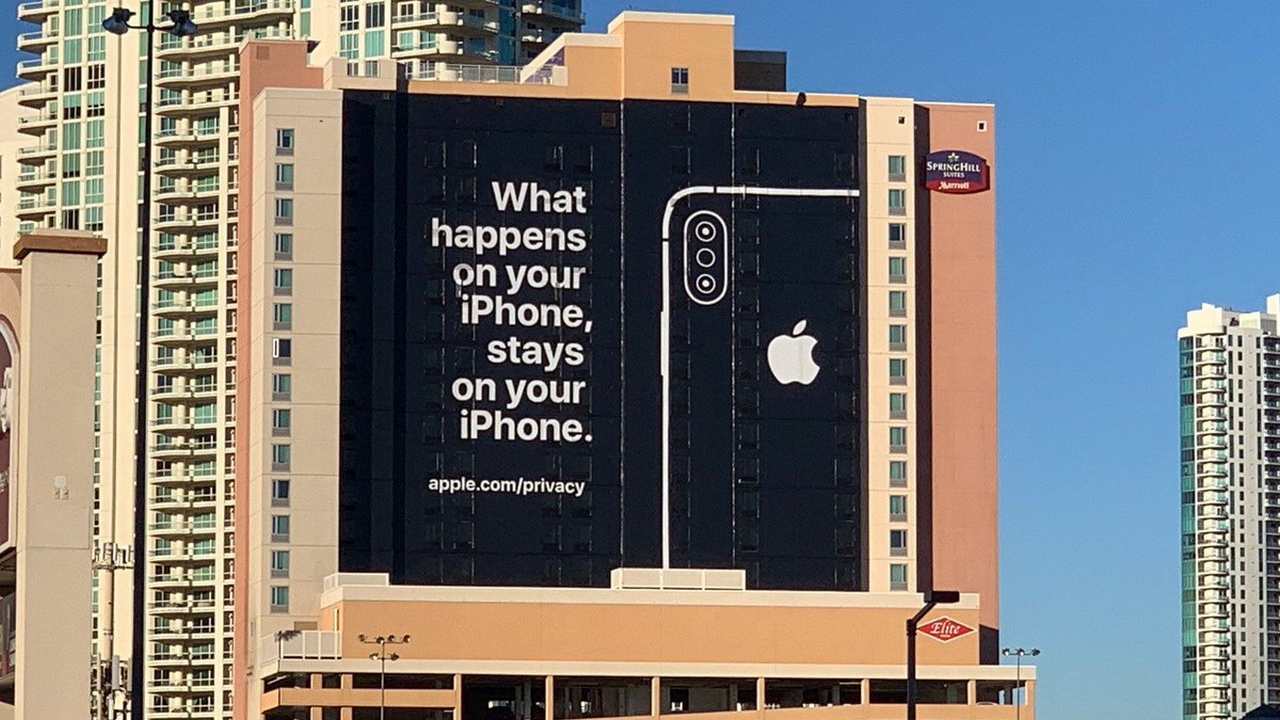Apple has been trying to champion privacy for a while now. We've even seen the Cupertino giant taking a dig at other companies with a phrase which read, "What happens on your iPhone stays on your iPhone." Well, apparently not.
A new privacy experiment/study conducted by The Washington Post's Geoffrey Fowler reveals that when 'Background App Refresh' is enabled on iOS devices, some apps use the feature to regularly send data to tracking companies.
As per the report, Fowler teamed up with a privacy firm named Disconnect and used VPNs to keep a check on what his iPhone was doing and when. While most of us are aware of the fact that most apps use trackers and send back user data, the frequency with which certain apps took advantage of the background refresh to send data off to tracking companies was what was concerning.
What also raises concern is the type of data being sent back to these tracking companies (which include the likes of Google and Facebook). Fowler found that these apps were sending data like phone numbers, email, location, IP address, and more. Well, apparently not.

The apps that were found passing data along included Microsoft OneDrive, Mint, Nike, Spotify, The Weather Channel, DoorDash, Yelp, Citizen, and even The Washington Post's own iOS app.
During the course of a week of testing, Fowler ran into as many as 5,400 trackers within apps on his phone. Disconnect told the reporter, taking into account the number of trackers and the type of data being shared that this would likely amount to 1.5 GB of data shared over the course of a month.
Now, not all data collection is bad, especially when you know that it's anonymised and stored for a limited period of time and used for a specific purpose. However, some trackers are collecting specific user information without providing information on how long that data is stored, let alone revealing who the data is being shared with.
As the report points out, there is no way to know which apps are using trackers and when that data is being sent. Apple doesn't have an app or tools in place that let iPhone users see which apps are using trackers and for what purpose.
What does Apple have to say?
When contacted for a comment by the publication, Apple had a pretty standard response.
"At Apple we do a great deal to help users keep their data private," the company said in a statement. "Apple hardware and software are designed to provide advanced security and privacy at every level of the system."
"For the data and services that apps create on their own, our App Store Guidelines require developers to have clearly posted privacy policies and to ask users for permission to collect data before doing so. When we learn that apps have not followed our Guidelines in these areas, we either make apps change their practice or keep those apps from being on the store," Apple says.
A new privacy experiment/study conducted by The Washington Post's Geoffrey Fowler reveals that when 'Background App Refresh' is enabled on iOS devices, some apps use the feature to regularly send data to tracking companies.
As per the report, Fowler teamed up with a privacy firm named Disconnect and used VPNs to keep a check on what his iPhone was doing and when. While most of us are aware of the fact that most apps use trackers and send back user data, the frequency with which certain apps took advantage of the background refresh to send data off to tracking companies was what was concerning.
What also raises concern is the type of data being sent back to these tracking companies (which include the likes of Google and Facebook). Fowler found that these apps were sending data like phone numbers, email, location, IP address, and more. Well, apparently not.

The apps that were found passing data along included Microsoft OneDrive, Mint, Nike, Spotify, The Weather Channel, DoorDash, Yelp, Citizen, and even The Washington Post's own iOS app.
During the course of a week of testing, Fowler ran into as many as 5,400 trackers within apps on his phone. Disconnect told the reporter, taking into account the number of trackers and the type of data being shared that this would likely amount to 1.5 GB of data shared over the course of a month.
Now, not all data collection is bad, especially when you know that it's anonymised and stored for a limited period of time and used for a specific purpose. However, some trackers are collecting specific user information without providing information on how long that data is stored, let alone revealing who the data is being shared with.
As the report points out, there is no way to know which apps are using trackers and when that data is being sent. Apple doesn't have an app or tools in place that let iPhone users see which apps are using trackers and for what purpose.
What does Apple have to say?
When contacted for a comment by the publication, Apple had a pretty standard response.
"At Apple we do a great deal to help users keep their data private," the company said in a statement. "Apple hardware and software are designed to provide advanced security and privacy at every level of the system."
"For the data and services that apps create on their own, our App Store Guidelines require developers to have clearly posted privacy policies and to ask users for permission to collect data before doing so. When we learn that apps have not followed our Guidelines in these areas, we either make apps change their practice or keep those apps from being on the store," Apple says.
Comments
Post a Comment